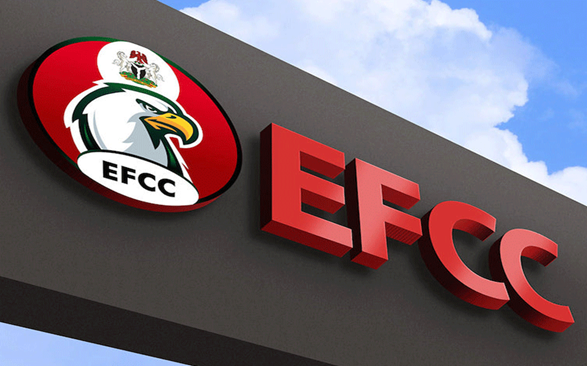The Nigerian Financial Intelligence Unit (NFIU) has announced that the country has made substantial progress in implementing its Action Plan under the Financial Action Task Force (FATF) International Co-operation Review Group (ICRG) process. This is according to a press release published by the NFIU on 14 June 2025. The development paves the way for an on-site assessment by the FATF Africa Joint Group to verify the effectiveness and sustainability of the reforms.
Nigeria was placed on the FATF Grey List in February 2023 due to deficiencies in its Anti-Money Laundering, Countering the Financing of Terrorism, and Counter-Proliferation Financing (AML/CFT/CPF) framework. The grey-listing was a result of the country’s failure to meet international standards on combating money laundering and terrorism financing.
Progress Made So Far
According to the NFIU, Nigeria has made significant strides in addressing the identified deficiencies. As contained in the press release, NFIU stated: “Following the latest FATF Plenary outcomes issued on Friday 15th June 2025, Nigeria has been acknowledged for making substantial progress in the implementation of its Action Plan. This development paves the way for an on-site assessment by the FATF Africa Joint Group to verify that reforms are effectively implemented and politically supported, and that the progress made is sustainable over the long term.”
The FATF has acknowledged the country’s progress, noting that Nigeria has:
- Completed its residual ML/TF risk assessment: Updating its national AML/CFT strategy to ensure alignment with other national strategies relevant to high-risk predicate offenses.
- Enhanced formal and informal international cooperation: Improving collaboration with international partners to combat money laundering and terrorism financing.
- Improved AML/CFT risk-based supervision: Strengthening supervision of financial institutions and designated non-financial businesses and professions (DNFBPs).
- Demonstrated increased dissemination of financial intelligence: The Nigerian Financial Intelligence Unit (NFIU) has increased the dissemination of financial intelligence, and law enforcement agencies (LEAs) are using this intelligence to investigate and prosecute money laundering cases.
Read also: NFIU confident Nigeria will exit the FATF Grey List in 2025
Next Steps
The NFIU has emphasized the need for all stakeholders to maintain momentum and ensure that reforms remain deeply embedded and effective. An on-site assessment by the FATF Africa Joint Group will verify the sustainability and effectiveness of the reforms.
“The development paves the way for an on-site assessment by the FATF Africa Joint Group to verify that reforms are effectively implemented and politically supported, and that the progress made is sustainable over the long term,” the NFIU stated. NFIU further stated: “This progress reinforces Nigeria’s resolve to not only exit the greylist but to build a resilient AML/CFT system that enhances the integrity of its financial system and economy. As we move towards the crucial on-site visit phase, all stakeholders are urged to maintain momentum and ensure that reforms remain deeply embedded and effective.”
“The NFIU will continue to provide strategic coordination and guidance in line with FATF standards to ensure full compliance and readiness ahead of the upcoming assessment. We encourage all partners to sustain this collective effort, which is vital to safeguarding Nigeria’s financial system from abuse and to restoring confidence among international partners”, NFIU assured.
Hafsat Bakari, the Director/Chief Executive Officer of the NFIU, is a lawyer and financial intelligence expert with years of experience in anti-money laundering, counter-terrorism financing, and counter-proliferation financing. Ms Bakari was appointed by President Bola Ahmed Tinubu in February 2024. Since her appointment, Ms Bakari has been making great efforts, in collaboration with stakeholders, to help Nigeria clean up its AML/CFT/CPF profile.
Stakeholder Commendation and Regional Cooperation
The NFIU has commended the leadership of President Bola Ahmed Tinubu and members of the Federal Executive Council for ensuring the rapid implementation of the Action Plan. The judiciary, law enforcement agencies, regulatory bodies, and private sector actors have also been praised for their contributions to strengthening Nigeria’s capacity to investigate and prosecute complex money laundering and terrorism financing offenses.
Nigeria has congratulated fellow jurisdictions—South Africa, Mozambique, and Burkina Faso—on reaching similar milestones and looks forward to continued regional cooperation under the FATF framework. This development highlights the country’s commitment to collaborating with international partners to combat money laundering and terrorism financing.
In his words to CAB about the development, Stephen Azubuike, Vice Chair, Policy & Regulations of the Steering Team of the Virtual Asset Service Providers Association (VASPA), remarked that “the substantial progress made by Nigeria in implementing the Action Plan of the Financial Action Task Force (FATF) is commendable”. As Nigeria prepares for on-site assessment by the FATF Africa Joint Group, Mr. Azubuike believes that this “clearly shows that the Nigerian Government, through relevant agencies like the NFIU and with the right political will, holds the key to ensuring that the wins recorded in the battle of combating money laundering and terrorism financing is sustained and that expectations are exceeded.”
Practical Implications and Effects of Being on the FATF Grey List
Being on the FATF Grey List can have significant practical implications and effects on a country, including the following:
- Increased Scrutiny: Financial transactions involving the country may face increased scrutiny from international banks and financial institutions, potentially leading to delays or rejection of transactions.
- Higher Compliance Costs: Financial institutions may incur higher compliance costs due to enhanced due diligence and reporting requirements, which can be passed on to customers.
- Reduced Foreign Investment: The grey-listing can deter foreign investors, potentially leading to reduced foreign direct investment and economic growth.
- Increased Risk Perception: The country’s reputation may be tarnished, leading to increased risk perception among investors, businesses, and financial institutions.
- Impact on Trade and Economy: Trade may be affected due to increased scrutiny of transactions, potentially leading to delays and increased costs.
Industry Stakeholders’ Support Crucial
Nigeria can benefit from industry stakeholders’ support of the NFIU’s efforts to address the FATF Action Plan, as a robust AML/CFT framework is essential for maintaining the integrity of Nigeria’s financial system and economy. By collaborating with the NFIU, industry stakeholders can help ensure that the country’s financial sector remains competitive, secure, and attractive to investors. Moreover, supporting the NFIU’s efforts can help mitigate the risks associated with money laundering and terrorism financing, ultimately contributing to a more stable and prosperous economy.
Read also: Nigeria’s Blockchain Policy: Industry Stakeholders Call for Action Over Rhetoric
Discover more from Crypto Asset Buyer
Subscribe to get the latest posts sent to your email.





